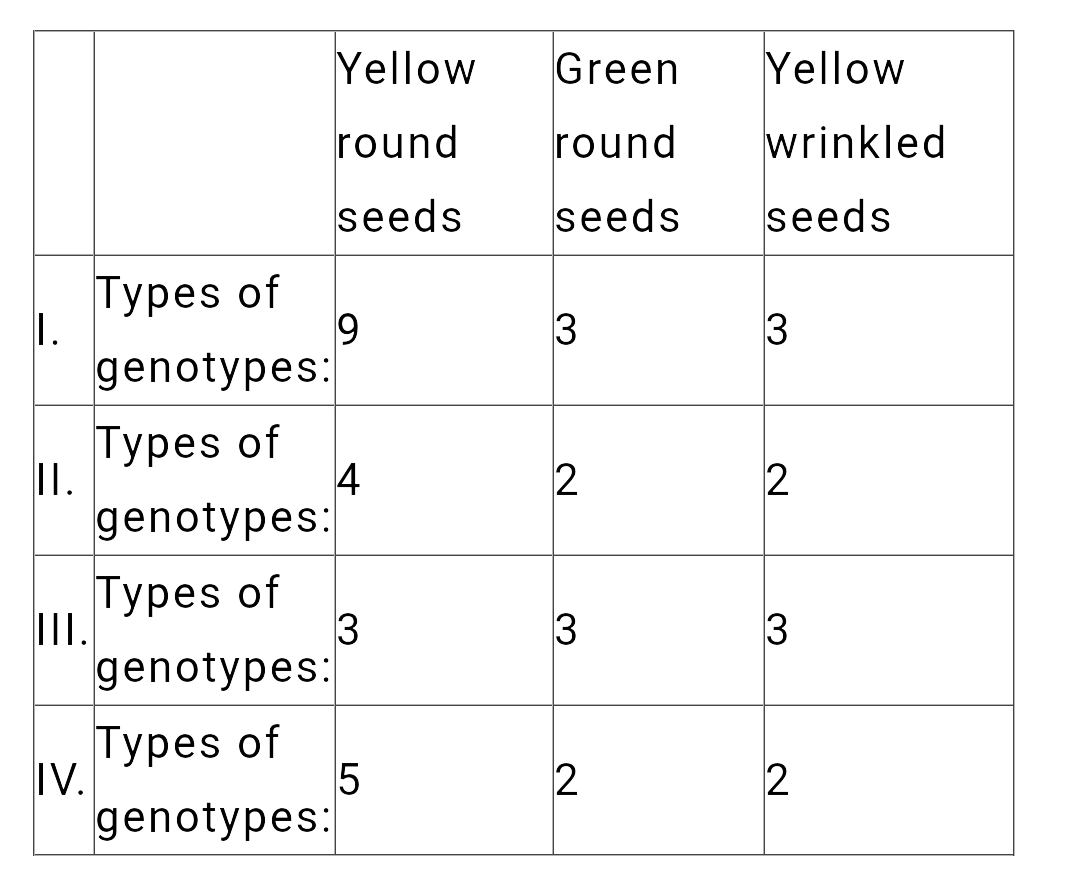Cross pollination produces
Similar offspring
Weaker progeny
Better progeny
Male progeny.
The correct Answer is:C
Step-by-Step Text Solution:
1. Understanding Cross Pollination: Cross pollination is defined as the transfer of pollen grains from the anther of one flower to the stigma of another flower on a separate plant. This process involves two genetically dissimilar plants.
2. Mechanism of Cross Pollination: In cross pollination, pollen grains from one flower (plant A) are transferred to the stigma of another flower (plant B). This transfer occurs between different plants, which is a key characteristic of cross pollination.
3. Genetic Variation: Since the pollen comes from a different plant, the resulting offspring will have a combination of genetic traits from both parent plants. This genetic mixing leads to variation in the offspring.
4. Hybrid Vigor: Cross pollination often results in increased hybrid vigor, which means that the offspring tend to be stronger and more fertile compared to those produced by self-pollination. This is due to the genetic diversity introduced by the combination of traits from two different plants.
5. Evaluating the Options:
- Similar Offsprings: Incorrect, as cross pollination involves different plants, leading to varied offspring.
- Weaker Progeny: Incorrect, as hybrid vigor suggests that the progeny are usually stronger.
- Better Progeny: Correct, as the offspring from cross pollination are generally more vigorous and better adapted.
- Male Progeny: Incorrect, as cross pollination does not specifically produce male progeny.
6. Conclusion: The correct answer to the question "Cross pollination produces" is better progeny.
---
- Similar Offsprings: Incorrect, as cross pollination involves different plants, leading to varied offspring.
- Weaker Progeny: Incorrect, as hybrid vigor suggests that the progeny are usually stronger.
- Better Progeny: Correct, as the offspring from cross pollination are generally more vigorous and better adapted.
- Male Progeny: Incorrect, as cross pollination does not specifically produce male progeny.
Topper's Solved these Questions
- NO IDEABOOK - DINESH PUBLICATION ENGLISHCHAPTER - NO IDEAEXERCISE - Check Your Grasp
32 Videos
- NO IDEABOOK - DINESH PUBLICATION ENGLISHCHAPTER - NO IDEAEXERCISE - Brain Teasers
37 Videos
- MOLLUSCABOOK - DINESH PUBLICATION ENGLISHCHAPTER - MOLLUSCAEXERCISE - CYG
10 Videos
- ORGANISMS AND THE ENVIRONMENTBOOK - DINESH PUBLICATION ENGLISHCHAPTER - ORGANISMS AND THE ENVIRONMENTEXERCISE - CYG
17 Videos
Similar Questions
Knowledge Check
Assertion : Cross pollination results in healthy and stronger offspring.
Reason This happens due to phenomenon of hybrid vigourABoth assertion and reason are true and reason is the correct explanation of assertion.BBoth assertion and reason are true, but reason is not the correct explanation of assertion.CAssertion is true, but reason is false.DBoth assertion and reason are false.Assertion: Cross-pollination results in healthy and stronger
offspring.
Reason: Due to phenomenon of hybrid vigour.AIf both Assertion and Reason are true and the Reason is the correct explanation of the Assertion.BIf both Assertion and Reason are true and the Reason is not
the correct explanation of the Assertion.CIf Assertion is true but the Reason is false.DIf both Assertion and Reason are false.
A pure homozygous pea plant with yellow round seeds is crossed with a pure homozygous pea plant with green wrinkled seeds. Their progeny produced is allowed to undergo self - pollination. It produces four different phenotypes . Each phenotype is an expression of different types of genotypes. Select the correct option from the table.

View SolutionPollination is
View SolutionIntraspecific cross pollination is
View SolutionA mechanism to prevent cross pollination is
View SolutionCross pollination doen not occur in
View SolutionCross pollination in crop plant is known as
View Solution
